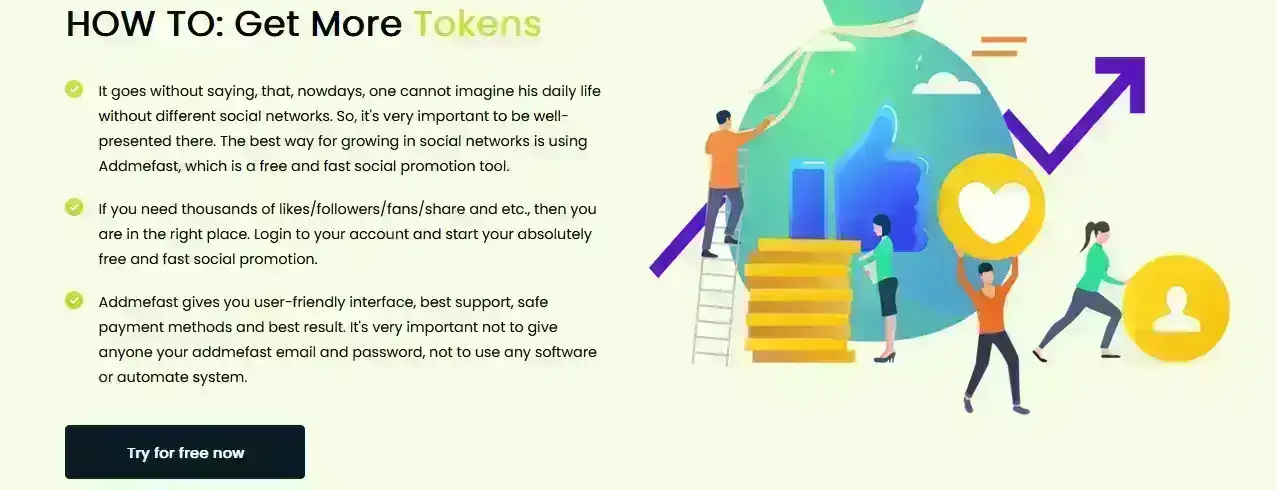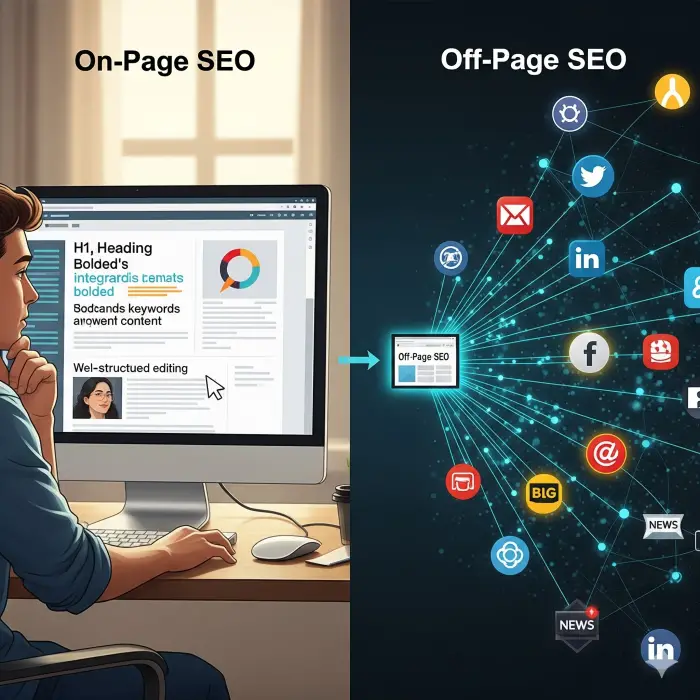
Hilarious Affiliate Marketing Fails Every Beginner Can Relate To

Affiliate marketing has become one of the most popular ways to earn an income online. The idea is simple: promote products or services for a company and earn a commission for every sale or lead you generate. Sounds easy, right? Well, if you're a beginner, the reality is often hilariously different.
From sending the wrong links to using outdated strategies, affiliate marketing is full of funny mistakes that almost every beginner experiences. In this article, we'll dive into some of the most common affiliate marketing fails, share relatable stories, and provide tips to avoid them--so you can learn,
Recommended for You
1. Promoting Products You Know Nothing About
One of the first mistakes new affiliate marketers make is promoting products they barely understand. Maybe you saw a high commission rate and thought, "This will make me rich!" without actually trying the product.
Imagine writing a glowing blog post about a software tool you've never used. Then, a reader asks a simple question in the comments. You realise you don't have a clue! The result? Awkward interactions, lost credibility, and a very confused audience.
Lesson: Always try the products you promote. First-hand experience not only builds trust but also helps you create authentic content that converts.
2. Confusing Your Affiliate Links
Another classic fail is mixing up affiliate links. Beginners often paste the wrong URL, forget to track campaigns, or even accidentally use their competitors' links. One marketer shared a story of promoting a "free trial" of a software, only to realise the link
You Might Enjoy

Goldenseal Health Benefits
Goldenseal health benefits Health Benefits: Goldenseal (Hydrastis canadensis) is a perennial herb…

7 Proven Strategies to Make Money Online: A Step-by-Step Guide for Beginners
7 Proven Strategies to Make Money Online: A Step-by-Step Guide for Beginners The digital age has…

How to Earn Money with LeadsLeap
How to Earn Money with LeadsLeap Signup-For-Leads-Leap-Account Are you in search of new…
Using broken or incorrect links not only affects sales but can also harm your reputation.
Tip: Double-check every link before publishing. Use link tracking software to monitor clicks, conversions, and ensure everything works smoothly.
3. Ignoring Your Target Audience
Affiliate marketing isn't just about choosing products you like--it's about your audience. Beginners often pick trendy products without considering whether their followers or readers actually need them.
For instance, promoting advanced graphic design software on a beginner photography blog may leave readers scratching their heads. They might click once out of curiosity, but they won't convert into buyers.
Advice: Understand your audience's interests, pain points, and preferences. Align products and services with what your readers actually want to see.
4. Spamming Social Media
Many beginners fall into the trap of aggressive promotion
More Reads You’ll Love

When Your Masterpiece Sells for $5: Funny Art Memes Every Artist Will Relate To
Every artist dreams of creating a masterpiece that garners admiration, respect, and, ideally, a…

Exploring Art Residencies What They Offer, How to Join, and More
What Is Art Residencies Introduction: Art residencies serve as sanctuaries for artists, providing…

Selling Art Online
How To Start Selling Art Online for Beginners If you are an artist or a creative person; harness…
One marketer laughed while recalling their first "campaign," where they posted their affiliate link in ten different Facebook groups only to get banned from half of them. The other half? Crickets. Lesson learned: spamming doesn't convert, and it damages your reputation.
Solution: Focus on providing value first. Share insights, reviews, and tutorials. Your affiliate links should feel natural and helpful, not forced.
5. Expecting Instant Results
Affiliate marketing is not a get-rich-quick scheme. Beginners often start a blog or social media channel and expect sales in the first week. When results don't appear, disappointment sets in.
Remember Sarah, who spent a month writing blog posts about online courses and expected commissions by week two? By the end of
Other Topics That Might Interest You

Boost Social Media Presence Free
Introduction To AddMeFast And How To Boost Your Social Media Presence Using This PlatformAddMeFast…

Dating Before Marriage
Why is dating important before marriage? Dating is a crucial step in the process of finding a life…

7 Trending Colours for House Interiors
7 Trending Colours for House Interiors: A Comprehensive Guide for Your Next Painting ProjectIf…
Pro Tip: Treat affiliate marketing as a long-term business. Track progress, optimise campaigns, and stay consistent.
6. Forgetting SEO and Content Optimisation
Beginners often create content without thinking about search engines. You can write amazing affiliate reviews or tutorials, but if no one sees them, the effort is wasted.
Common mistakes include:
- Using generic headlines like "Buy This Product Now"
- Not including target keywords
- Ignoring meta descriptions and internal links
- Poor formatting that reduces readability
Quick Fix: Learn the basics of SEO optimisation. Use relevant keywords, structure content with and tags, and include links to other useful pages on your website.
7. Overloading Content With Links
Beginners often think that the more affiliate links, the better. However, too many links can overwhelm readers and reduce trust. Imagine reading a blog post and seeing a new "Buy Now" button every few lines. It's distracting and feels spammy.
Rule of Thumb: Add 1-3 strategic affiliate links per article or section. Contextual placement--where the link naturally fits--is far more effective than random placements.
8. Using Clickbait Titles That Disappoint
Clickbait is tempting. Titles like "Earn $10,000 in a Week With This Tool!" may get clicks, but if the content doesn't deliver, users will bounce immediately. High bounce rates hurt SEO and credibility.
Instead, craft titles that are engaging but truthful. Examples:
- "5 Common Affiliate Marketing Mistakes Beginners Make"
- "How I Learned From My First Affiliate Marketing Fails"
- "Affiliate Marketing Fails That Will Make You Laugh (and Learn)"
9. Forgetting Mobile Optimisation
Many beginners focus on desktop design and forget mobile users. With over half of web traffic coming from mobile devices, failing to optimise for mobile can cost you clicks, conversions, and commissions.
Funny story: one beginner launched a beautifully designed affiliate blog, only to find that half of the "Buy Now" buttons were hidden on mobile screens. Visitors couldn't click, sales were zero, and lessons were learned the hard way.
Pro Tip: Always test your website on different devices and screen sizes. Make sure links, buttons, and forms are fully functional on mobile.
10. Ignoring Analytics
Another classic fail is ignoring performance metrics. Beginners often focus on content creation alone and neglect tracking clicks, conversions, or traffic sources.
Without analytics, you're flying blind. You won't know which products perform, which pages convert, or which marketing channels are effective.
Solution: Use tools like Google Analytics, ClickMeter, or affiliate dashboards to monitor performance. Optimise campaigns based on real data, not guesswork.
11. Overpromising and Underdelivering
Beginners sometimes exaggerate product benefits to make sales, thinking it will boost conversions. While it might work temporarily, disappointed users rarely return. Your reputation as a trustworthy affiliate marketer suffers.
Always be honest about product limitations, and highlight both pros and cons. Authenticity builds trust, which leads to sustainable income over time.
12. Thinking Social Media Alone Will Make You Rich
Posting affiliate links on Instagram, TikTok, or Facebook is tempting, but relying solely on social media is risky. Algorithms change, posts get buried, and organic reach is limited. Many beginners learned this the hard way after weeks of posting and minimal results.
Strategy: Combine social media with content marketing, email campaigns, and SEO. A multi-channel approach is far more effective than depending on one platform.
13. Forgetting Legal Requirements
Affiliate marketing has rules--disclosure is one of the most important. Beginners often forget to add disclaimers like "This post contains affiliate links. If you purchase through my link, I earn a commission."
Failing to comply with disclosure requirements can get you in legal trouble and harm your credibility. Always be transparent with your audience.
14. Comparing Yourself to Experienced Marketers
It's easy for beginners to feel discouraged when comparing themselves to established affiliate marketers with thousands of subscribers and high monthly commissions. This mindset often leads to burnout or abandoning the journey prematurely.
Remember: every expert was once a beginner. Focus on learning, testing, and growing consistently rather than chasing overnight success.
15. Not Learning From Mistakes
The most relatable failure of all is repeating the same mistake. Beginners often stumble multiple times--link errors, wrong products, poor content--but fail to analyse and adapt. Each failure is a learning opportunity.
Keep a journal of your affiliate campaigns, note what worked and what didn't, and continuously optimise. Over time, your "fails" become valuable lessons that drive your success.
Conclusion: Laugh, Learn, and Level Up
Affiliate marketing is a journey full of trial and error. Every beginner experiences funny and frustrating fails--but these are the moments that teach the most. From confusing links to overpromising and ignoring analytics, the mistakes are relatable and often hilarious in hindsight.
The key takeaway is to approach affiliate marketing with patience, authenticity, and a willingness to learn. Embrace mistakes as part of the process, optimise your strategies, and gradually, you'll turn those early failures into profitable successes.
If you want more tips on improving your online business skills, check out our full site resources and learn from guides on digital marketing, e-commerce, and SEO optimisation.





Comments